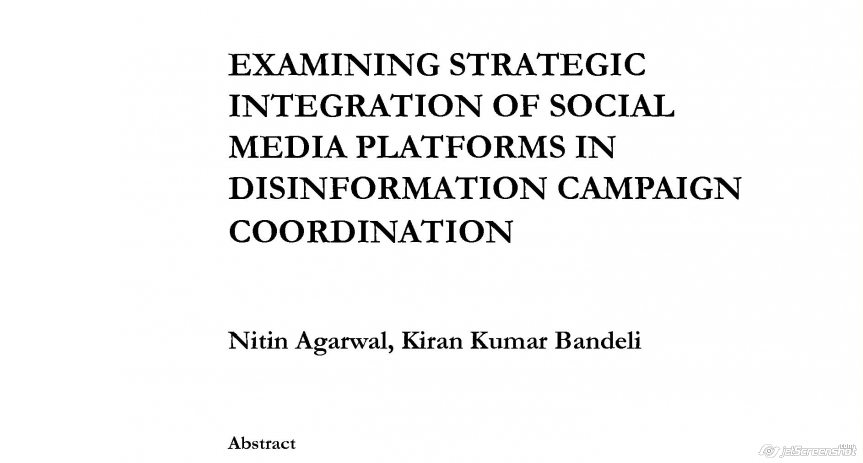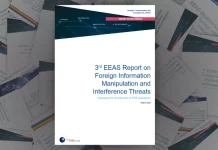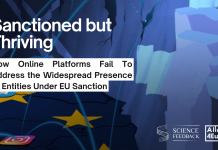
By NATO Stratcom Centre of Excellence
![]() Download publication file (2.54 MB)
Download publication file (2.54 MB)
Social media platforms are widely used for sharing information. Although social media use is generally benign, such platforms can also be used for a variety of malicious activities, including the dissemination of propaganda, hoaxes,
and fake news to influence the public. The availability of inexpensive and ubiquitous mass communication tools has made such malicious activity much more convenient and effective. In this paper we study how blogs act as virtual
spaces where malicious narratives are framed and then further disseminated through social media platforms such as Twitter and Facebook. To discover how such disinformation campaigns work, it is necessary to examine the link
between blogs and social media platforms and the role they play in media orchestration strategies, more specifically cross-media and mix-media strategies.
We have carried out an in-depth examination of information networks, using social network analysis and cyber forensics, to identify prominent information actors and the leading coordinators of several disinformation campaigns. The research methodology we have developed reveals a massive disinformation campaign pertaining to the Baltic region, conducted primarily through blogs but strategically linking to a variety of other social media platforms, e.g. Twitter, Facebook, YouTube, and VKontakte.
Defence Strategic Communications | Volume 4 | Spring 2018
DOI 10.30966/2018.RIGA.4.6.
Note: Although blogs fall under the broad definition of social media, for the purposes of this paper we distinguish between blogs and social media, using the term social media to refer to forums that have some sort of formal membership, but where any member can post about anything (within certain limits of legality and decency) to the audience of the account holder’s choice; a blog is the product of an individual (at least ostensibly), writing about a set of topics limited by the blogger’s interests.
Keywords—social media, blogs, social network analysis, cyber forensics, disinformation, mix-media, cross-media.
About the Authors
Nitin Agarwal is the Jerry L. Maulden-Entergy Endowed Chair and Distinguished Professor of Information Science at the University of Arkansas and Director of the Collaboratorium for Social Media and Online Behavioral Studies (COSMOS). He researches social computing, cyber information campaigns, deviant behavior modeling, group dynamics, social-cyber forensics, data mining, and privacy.
Kiran Kumar Bandeli is a PhD student at the University of Arkansas at Little Rock. He majors in Computer and Information Sciences with research interest in social media analysis, social computing, narrative analysis, and mis/
disinformation campaigns.
By NATO Stratcom Centre of Excellence




